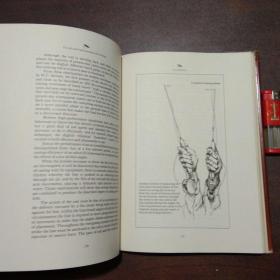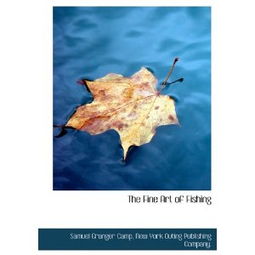Content:
Introduction: Fishing is an enjoyable pastime that allows us to unwind and connect with nature. However, one of the most frustrating experiences while fishing is losing your hooks. Whether you are a beginner or an experienced angler, learning how to avoid losing your hooks is crucial for a successful fishing trip. In this article, we will discuss various techniques and tips to help you improve your hooking skills and keep your catch secure.
Choose the Right Hooks: The first step in avoiding losing your hooks is selecting the appropriate hooks for your fishing needs. Hooks come in different sizes, shapes, and materials, each designed for specific fish species and fishing environments. Here are a few factors to consider when choosing hooks:
a. Size: Match the hook size to the fish you are targeting. Larger hooks are suitable for bigger fish, while smaller hooks are better for smaller fish.
b. Shape: Different hook shapes are designed for specific fishing techniques and fish species. For example, a treble hook is ideal for lure fishing, while a single hook is suitable for live bait.
c. Material: Hooks are made from various materials, including steel, brass, and titanium. Each material has its own advantages and disadvantages. Choose a material that suits your fishing style and budget.
Proper Hook Set: Once you have selected the right hook, it is essential to set it properly to avoid losing your catch. Here are some tips to help you achieve a proper hook set:
a. Hook Length: Ensure that the hook is long enough to prevent it from bending or breaking when a fish takes the bait. However, too long hooks can lead to snags and line twists.
b. Bait Presentation: When presenting your bait, avoid overloading the hook. Too much bait can cause the hook to become buried in the mouth of the fish, making it difficult to remove. A small amount of bait is usually sufficient.
c. Hooking Technique: When hooking your bait, make sure the hook is fully inserted into the bait. For live bait, insert the hook through the mouth or a vital area to ensure a secure hold. For artificial lures, position the hook in the most effective spot to attract fish.

Line Management: Proper line management is crucial in preventing hooks from getting snagged or lost. Here are some tips to help you manage your line effectively:
a. Keep Your Line Taut: Maintaining a taut line will help you detect bites more quickly and reduce the chances of losing your hook due to a slack line.
b. Avoid Line Twists: Line twists can lead to hooks getting snagged or breaking. Regularly check your line for twists and untangle them promptly.
c. Use Leader Lines: For certain fishing techniques, such as bottom fishing or fly fishing, using a leader line can help prevent hooks from getting snagged on underwater structures.
Knot Techniques: Choosing the right knot for your fishing setup is essential for keeping your hooks secure. Here are some popular knot techniques to consider:
a. Palomar Knot: This knot is known for its simplicity and strength, making it an excellent choice for most fishing scenarios.
b. Improved Clinch Knot: This knot is easy to tie and provides a secure connection between the hook and the line.
c. Uni Knot: The uni knot is a versatile knot that can be used for various fishing applications, including fly fishing and saltwater fishing.
Fish Handling: Proper fish handling is essential for keeping your hooks intact and preventing the fish from escaping. Here are some tips to help you handle fish safely:
a. Use a Landing Net: When catching a fish, use a landing net to support the fish's weight and avoid damaging the hook.
b. Avoid Rough Handling: Be gentle when removing the hook from the fish's mouth. Rough handling can cause the hook to bend or break.
Conclusion: Mastering the art of angling and avoiding losing your hooks requires practice, patience, and attention to detail. By choosing the right hooks, setting them properly, managing your line effectively, using appropriate knots, and handling fish with care, you can improve your hooking skills and increase your chances of a successful fishing trip. Happy fishing!












